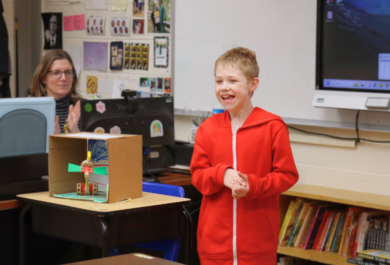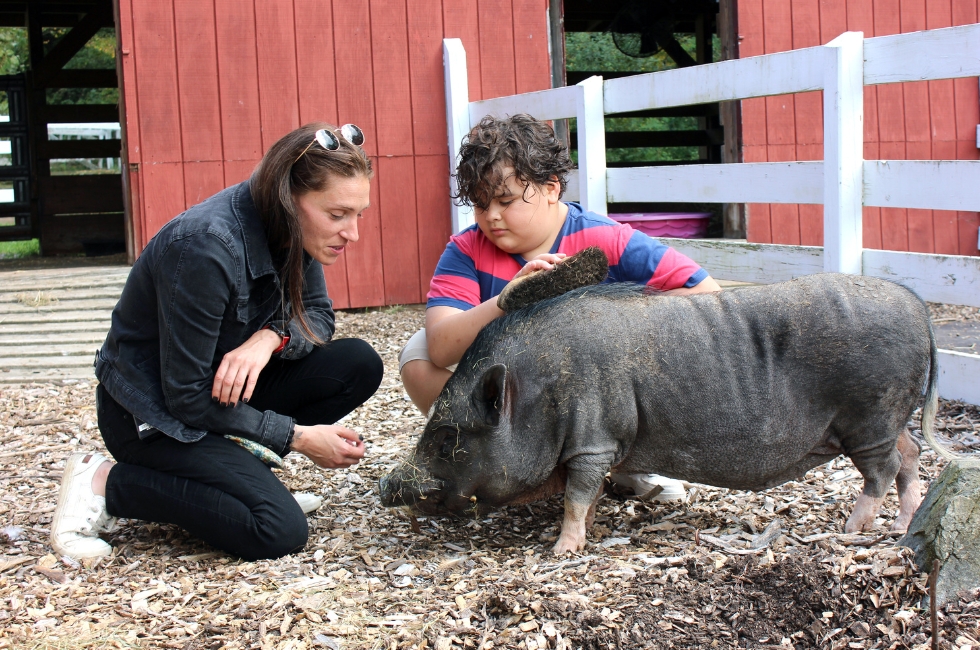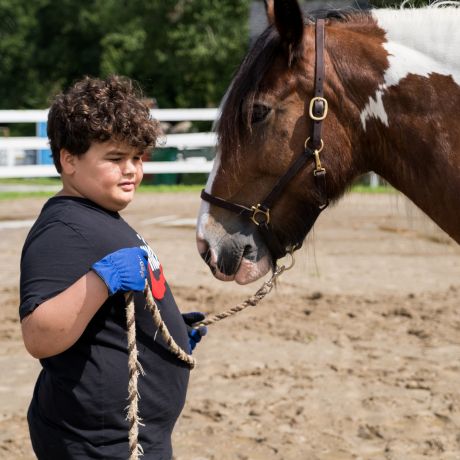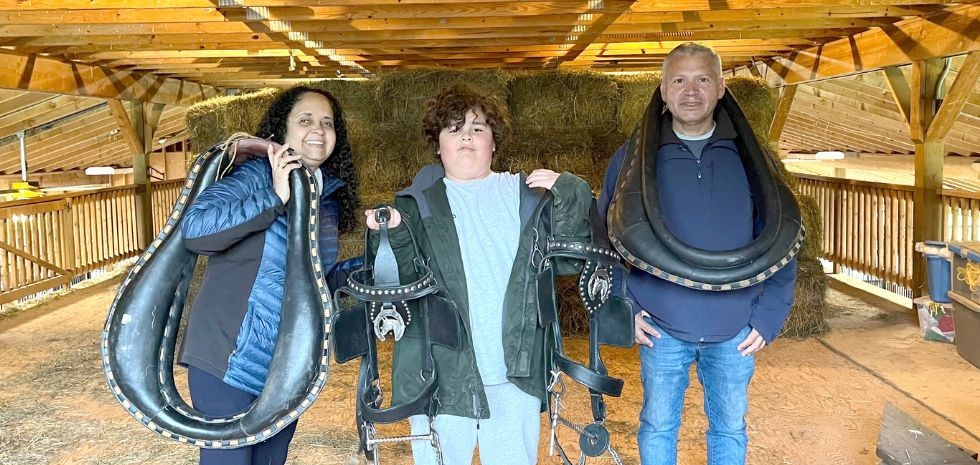Announcements


A core strength of Green Chimneys is its therapeutic milieu, which enables a highly individualized approach to intervention aimed at fostering a student’s growth. Middle school student Luis is benefitting from Respite Therapy, a program that enhances the support outlined in his individual education and treatment plan through targeted activities to address his more specific needs.
Part of Luis’ day-to-day experience at school includes managing peer interactions, which can range from positive to challenging. Therefore, a key area of focus has been developing his interpersonal effectiveness to help him navigate relationships and maintain healthy communication.
Several months ago, Luis personally expressed interest in respite services, demonstrating his commitment to his own development and advocating for what he needs. First, clinicians help students identify their perspective on areas they wish to improve. Then, Respite staff work with the student to determine which approach, such as talk therapy, play therapy, animal-assisted interactions, or more active interventions will best support their goals, and strengths.
Respite therapy has been a cornerstone of Luis’ daily routine with a treatment plan built around practical, engaging activities such as Dialectical Behavior Therapy (DBT) groups and consistent psychoeducation and skill-building support to practice DBT coping skills, which include mindfulness, emotion regulation, and relationship-building. Hands-on activities like designing a relationship wheel, where Luis and his therapist mapped out his support system, have been especially effective.
Luis and his parents also participated in a family session focused on relationships and communication, which gave him a chance to share his knowledge and enthusiasm for the farm. At that session, equine staff took notice of the way Luis showed his parents how to care for the horses, the detail that goes into each task, and why it’s important. “I love anything that involves interacting with an animal; touching, feeling, having fun with it,” says Luis. “We walked around the horse barn learning different things about the horses, helped a mini by taking him on a walk, and tried out the tack gear to get my parents familiar with the program.”

Luis’ bond with the horses was evident, and his parents expressed excitement and pride at his abilities and instructions. Staff regularly witness how Luis loves making sure that the horses have everything they need, and are content. He is very observant of all the animals at the farm, and is forever exploring his curiosity in a safe, respectful way.
“These exercises allow Luis to see how personal connections help him manage challenges and improve his social interactions,” says Respite Supervisor Diana Fiumara. “The combination of group work, individual therapy, and hands-on activities have strengthened his confidence and enhanced his coping mechanisms. Respite has truly helped Luis to thrive.”
Luis recalls struggling with communication before entering respite. “Communicating easily with my words was hard for me,” he admits. Through respite, Luis feels he found a way to connect with staff and activities that made a difference.
When asked about the activities, Luis says, “We do things that are fun, and staff implement coping skills while we’re doing it, which makes it fun.” Respite support keeps individual needs in mind, and incorporates ways to motivate a student to participate fully.
Now, Luis is now better able to express himself. “Communicating when I need a break from feeling overwhelmed has gotten easier,” he says. For Luis, the skills gained in respite offer support “all the time, whenever things feel too hard.”
Learn more about residential treatment and clinical services


Crowned the best for falconry in medieval times, gyrfalcons were once reserved for kings. As the largest falcon in the world, with exquisite plumage ranging from bright white to deep charcoal, gyrs are revered for their powerful skill of flight. Their long wings make hunting waterfowl from 3,000-feet-high a feasible and fantastical feat. This falcon was flown in the sport of falconry for several years.